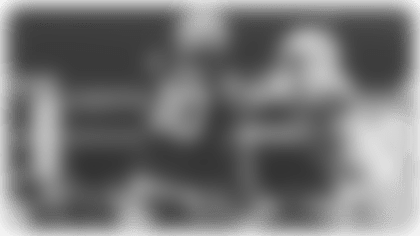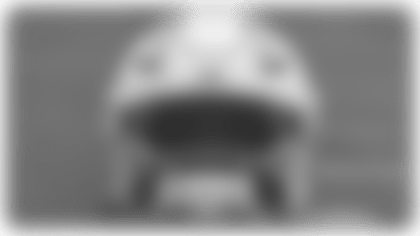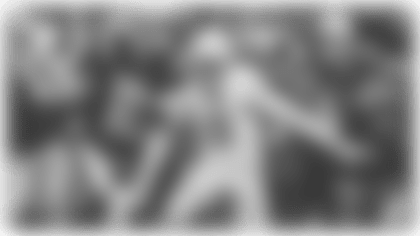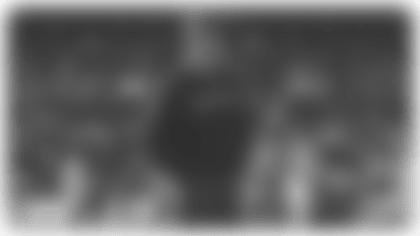There were 10 proposed rule changes on the docket at the NFL Spring League Meeting this week in Orlando, Florida.
On Tuesday, the NFL announced that three of those proposals passed a vote of all 32 owners and go into effect immediately.
Here are the changes for 2018.
- By Competition Committee; Changes standard for a catch.
What it does: A player who makes a catch may advance the ball. A forward pass is complete (by the offense) or intercepted (by the defense) in the field of play, at the sideline, or in the end zone if a player, who is inbounds:
(a) secures control of the ball in his hands or arms, prior to the ball touching the ground; and
(b) touches the ground inbounds with both feet or with any part of his body other than his hands; and
(c) maintains control of the ball after (a) and (b) have been fulfilled, performs any act common to the game (e.g., tuck the ball away, extend it towards or over the goal line or the line to gain, take an additional step, turn upfield, or avoid or ward off an opponent), or he maintains control of the ball long enough to do so.
- By Competition Committee; Makes permanent the playing rule that changes the spot of the next snap after a touchback resulting from a free kick to the 25-yard line.
What it does: Makes permanent the Playing Rule that changes the spot of the next snap after a touchback resulting from a free kick to the 25-yard line.
- By Competition Committee; Authorizes the designated member of the Officiating department to instruct on-field game officials to disqualify a player for a flagrant non-football act when a foul for that act is called on the field:
What it does: The designated member of the Officiating department determines that a foulfor a non-football act called on the field is flagrant, then they can instruct the on-field officiating crew to disqualify the player(s) who committed the foul. Those players who were not penalized, but who engaged in non-football acts that were determined to be flagrant and directly related to the foul called on the field, may also be disqualified by the designated member of the Officiating department. The determination that a foul is flagrant must be based on the available video provided on the television broadcast and the designated member of the Officiating department must instruct the officiating crew to disqualify the identified player(s) before the ball is next legally put in play. The Officiating department does not have the authority to instruct the on-field game officials to assess a penalty against a player.






